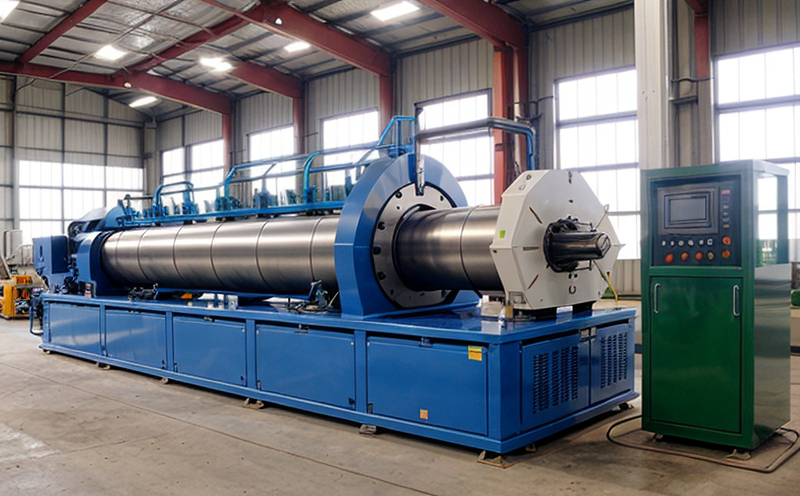EN 15442 Sampling Procedures in Recycling Operations
The European Standard EN 15442 provides detailed guidelines on sampling procedures for recycling operations. This standard ensures that the samples taken during and after recycling processes accurately reflect the characteristics of the materials being recycled, thereby ensuring quality control and compliance with regulatory requirements.
This service is particularly crucial in sectors where waste management and recycling are central to business operations. For instance, it supports industries such as metal processing, paper production, plastic manufacturing, and electronics recycling. Accurate sampling ensures that recycled products meet the required specifications for reprocessing or end-use applications, thus enhancing product quality and customer satisfaction.
The standard covers various aspects of sampling in a recycling environment, including:
- Sampling methods suitable for different types of materials
- Sample sizes based on material properties and desired precision
- Location-specific sample collection points within the recycling facility
- Handling procedures to maintain sample integrity during transportation
- Storage conditions to prevent degradation or contamination
- Data recording methods for traceability and compliance verification
The EN 15442 sampling procedure is essential in ensuring that the recycled materials are representative of the bulk material. This ensures consistency in product quality, which is critical for industries relying on recycled content for their products. By adhering to this standard, organizations can demonstrate adherence to international best practices and regulatory requirements.
The service provided includes:
- Training in sampling techniques and procedures
- On-site sampling support during the recycling process
- Data analysis and interpretation of sample results
- Compliance reporting with relevant standards and regulations
- Continuous improvement recommendations based on sampling data
The primary goal of this service is to ensure that recycled materials are accurately represented in samples, thereby facilitating consistent quality control throughout the recycling process. This not only supports better product outcomes but also enhances sustainability by minimizing waste and maximizing resource recovery.
Accurate sampling is fundamental for industries reliant on recycled materials. By ensuring that the samples taken during recycling operations reflect the true characteristics of the material being processed, this service helps maintain high standards in quality assurance and compliance.
Why Choose This Test
- Achieve consistent product quality throughout the recycling process
- Ensure compliance with international standards such as EN 15442
- Support continuous improvement in waste management and recycling practices
- Minimize risks associated with inaccurate sampling leading to substandard products or non-compliance issues
- Enhance reputation among customers, suppliers, and regulatory bodies by demonstrating adherence to best practices
- Avoid costly rejections of recycled materials due to discrepancies in quality
- Promote a sustainable approach to waste management and recycling through accurate sampling
- Ensure traceability and accountability in the recycling process for all stakeholders
The accuracy of sampling is crucial for maintaining product quality and ensuring compliance with international standards. By choosing this test, organizations can ensure that their recycled materials are accurately represented, leading to consistent quality control throughout the recycling process.
Customer Impact and Satisfaction
Achieving consistent product quality throughout the recycling process is a key factor in satisfying customers' expectations. By ensuring accurate sampling according to international standards like EN 15442, organizations can demonstrate that their recycled materials meet the required specifications for reprocessing or end-use applications.
Customer satisfaction is directly linked to the quality of products and services provided by an organization. With accurate sampling procedures in place, customers can trust that the recycled materials they receive are representative of the bulk material. This enhances customer confidence and loyalty, fostering long-term business relationships.
In addition to meeting regulatory requirements, this service also supports a sustainable approach to waste management and recycling. By minimizing waste and maximizing resource recovery, organizations contribute positively to environmental sustainability. This not only benefits the environment but also aligns with customers' growing expectations for eco-friendly products and services.
Environmental and Sustainability Contributions
The accurate sampling procedures provided by this service play a crucial role in supporting sustainable waste management practices. By ensuring that recycled materials are accurately represented in samples, organizations can minimize waste and maximize resource recovery. This contributes positively to environmental sustainability.
Achieving consistent product quality throughout the recycling process is essential for reducing waste and promoting circular economy principles. With accurate sampling procedures in place, organizations can ensure that their recycled materials meet the required specifications for reprocessing or end-use applications. This supports a sustainable approach to waste management and recycling, ultimately contributing to environmental protection.
The service provided aligns with international standards such as EN 15442, ensuring compliance with regulatory requirements while promoting best practices in waste management and recycling. By minimizing risks associated with inaccurate sampling leading to substandard products or non-compliance issues, this service helps organizations contribute positively to sustainability efforts.





